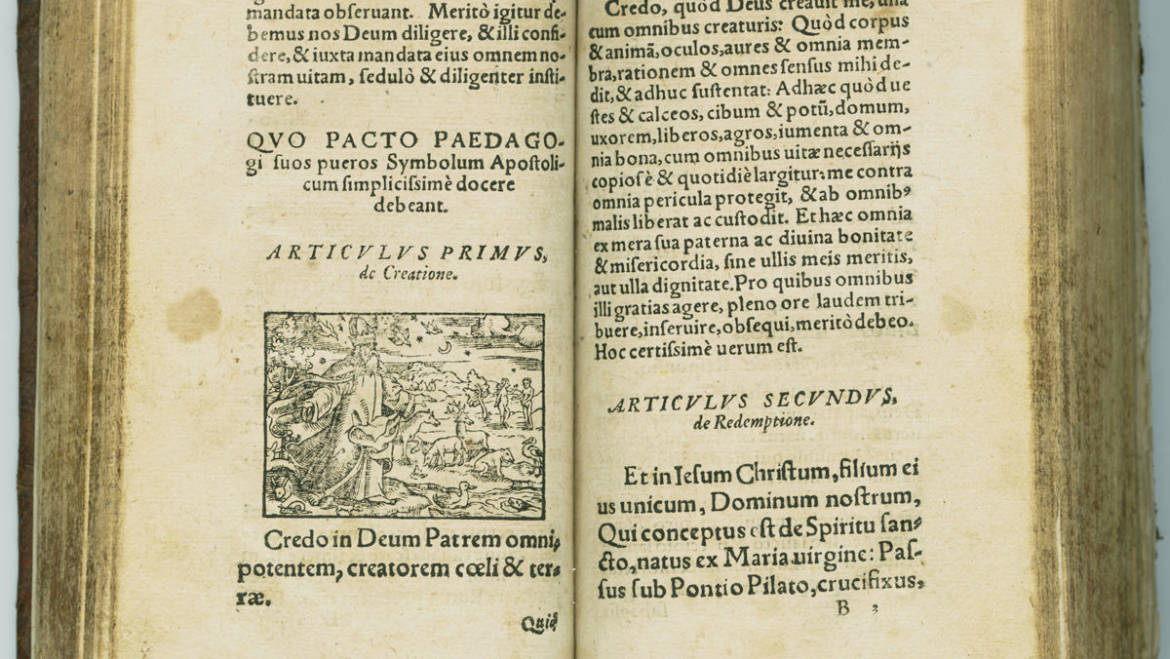Of all the things Martin Luther wrote, he is probably best known for two things: the hymn “A mighty fortress is our God” and the Small Catechism. Interestingly, Luther himself was ambivalent about the lasting value of most of his writings, with two exceptions—and
one of them was this little pamphlet, the Small Catechism. And this from someone whose writings changed the whole landscape of the Western religious world.
Most of us know the Small Catechism well. Many spent hours memorizing it as teens. But how did it come to be, and what is it that makes it so helpful?
In 2017 we are observing the 500th anniversary of the Reformation’s start, when Luther posted the Ninety-Five Theses. If that was the act of a passionate young man, a decade later he was facing the needs of the church he was reforming. If it was no longer enough just to go through the motions, following the lead of a Latin-rite priest, then what was at the heart of what people needed to know—and how were they to learn that? To meet that need, Luther the pastor and teacher created two catechisms—the Large (primarily intended for pastors) and the Small (for use in the home).
A catechism is a document that lays out the basic ideas of religion in a simple question-and-answer format. For the Small Catechism, Luther chose to open up some of the basics of Christian faith: the Ten Commandments, the Apostles’ Creed, the Lord’s Prayer, the sacraments of Holy Baptism and Holy Communion, and the Office of the Keys and Confession. It’s worth noticing that he based this teaching document on what already existed rather than starting from scratch and inventing a whole new system. Luther was committed to the church catholic.
His genius is shown in the way he opened up these statements of faith. The famous question in each case was, in German, “Was ist das?” In English, most of us know this as “What does this mean?” but a literal translation would be “What is that?” And then he proceeded to tell, in beautifully simple language, what each commandment, each part of the creed, each petition of the Lord’s Prayer, tells us about God and about us as God’s children. These explanations set out a God who is not the stern judge of Luther’s own childhood, but a loving parent who offers us unconditional grace and only then invites us to live accordingly.
How profound was Luther’s achievement in writing the Small Catechism? A mark of it can be seen in the simple fact that nearly five hundred years after its first publication in 1529, and after being translated into hundreds of languages, it is still one of the most effective tools for learning and teaching what the Christian faith is all about.
This is one in a series of articles about Lutheranism on the 500th Anniversary of the Reformation. © 2016 Augsburg Fortress. Used by permission.


